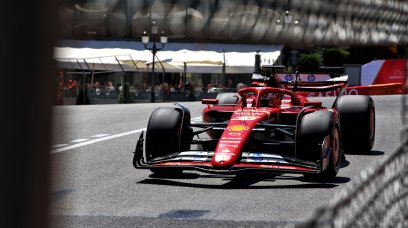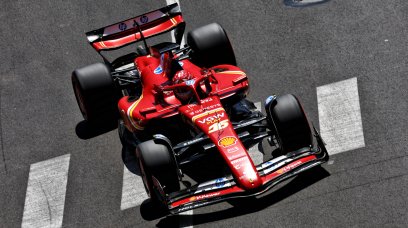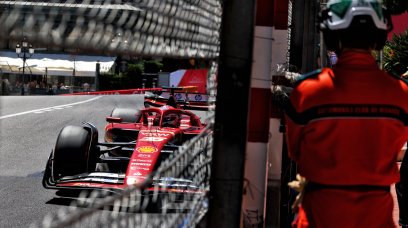During the Monaco Grand Prix Saturday team boss press conference, RacingNews365.com put the question of F1's plans of incorporating a driver and 'top three employee' salary allowance in the budget cap at some future point to the delegates. At the time we were careful to ensure the word 'allowance' was included in the question, as the sport's overriding intention is not to limit driver or top three earner income – that is arguably illegal and most certainly collusive – but rather to introduce a mechanism whereby drivers and top executives are categorised as 'performance differentiators', much as complex wings or demon underbodies are. These costs are included in F1's overall budget cap, so the concept currently under discussion has allowances of, say, $50 million for drivers and top three salaries added to the prevailing cap. Should teams decide to spend $60m, then the delta of $10m is subtracted from their cap. Crucially, under this concept salaries are NOT capped, nor have there been any serious talks about blanket salary caps for legal reasons as outlined above. Thus, team bosses could balance driver or top earner wages versus technological spend in order to maximise performance within given spend levels; whether to blow $50m on ace drivers and hope they deliver better results than the same spend on updates, or favour investment in technologies and a cheaper wage bill. That's a simplistic explanation, but it illustrates the overall drift and direction of talks: salary allowances, not caps.
Verstappen and Vettel raise concerns
Fast forward to Baku: during the Friday media sessions, numerous questions about salary caps were put to the four driver groups – with predictably emotional responses. Max Verstappen suggested such caps could impact on young driver programmes, with investors more reluctant support budding talents as payback periods increase, while Sebastian Vettel inferred that F1 and the teams were simply profiteering. This from a highly-paid former champion who too often appears to be in cruise-and-collect mode, but we digress… As for Verstappen’s concerns – the Dutchman surely has a point, but academy drivers would be better served by two or three additional teams than by higher wages. Measures which reduce the overall costs of racing make it more likely that additional teams will enter F1 – the FIA currently has six grid slots open – in turn making it more likely that youngsters reach F1 in the first place. Let's sort that one out first, Max. But we digress: during Saturday's team boss conference in Baku, the differences in the terminologies used by Mercedes F1 CEO Toto Wolff and his Ferrari counterpart Mattia Binotto about this very topic were marked: the former spoke of "allowance" and the latter of "salary cap". Confusing, yes, but to be totally fair: their questioner had asked about salary caps, not allowances in the first place.
Clarification from team bosses
Thus, RacingNews365.com requested clarification from both team bosses. "I was wrong in calling it a 'cap', I should have called it an 'allowance', because this is the right way to approach the exercise," the Swiss Italian conceded. "The solution you described is one of the solution[s] we discussed but is not the solution we so far agreed because, as I said before, there is not an easy solution. So it will be an allowance, but still many discussions will need to be in place and it will take time." Notes: The reason there is no solution to date is because talks about allowances are ongoing, but the salient point is his phrase: "It will be an allowance". With that clarification, most driver objections about salary caps flew straight out the window… although the higher earners may well find themselves required to pick and choose between eye-watering stipends or faster cars if allowances are introduced. This is surely not an unreasonable choice, although, as Binotto said: "The salary cap for drivers will affect only three, four maximum teams, not more than that." Crucially, it is also unlikely both drivers within a team will be so affected, so around four of 20 (or hopefully 26). Equally, would a Vettel, Verstappen or Lewis Hamilton really starve were their incomes to be reduced by a few million; would they exit F1? If anything, lower earners should back an allowance as their teams would have more to spend on faster cars – in turn further levelling the playing field.
Are F1 drivers 'performance differentiators'?
The overriding question is, though, whether drivers are de facto performance differentiators, whether they provide 'unfair' advantages to teams who can afford $50m stipends for star talents over those teams who need to take on drivers whose major assets are wealthy fathers or government ministers. The answer is as short as it is obvious. The rationale behind F1's budget cap was, of course, to introduce an element of performance parity by levelling the financial playing field while reducing costs in what was fast becoming an unsustainable sport. Forget not that over half the grid was forced to shut down or change hands during the past decade – the last shortly before the cap was introduced. Had this trend continued, imagine the impact on Future F1 Driver. It follows, then, that there is little sense in effectively sidestepping the rationale behind the introduction of an overall budget cap by enabling major teams with huge reserves of corporate backing to enter into bidding wars for the best driver talents in order to 'buy' performance advantages. That surely defeats the objective of the budget cap – to which all teams unanimously agreed.
McLaren show support for looking into cap
"We are absolutely supportive of looking into the topic, because from our point of view everything which is somehow performance relevant, it makes sense for it to be included in the [budget] cap. We know from other sports that it can be done,” McLaren Team Principal Andreas Seidl told RacingNews365.com in Baku. When budget caps were first mooted there were, though, massive pushbacks from major teams, while independents prayed for introduction sooner rather than later. The processes took time and numerous draft regulations, but these are now an accepted part of the F1 landscape. Salary allowances are the logical next step, although, as with budget caps, fine tuning will be a laborious and time-consuming process. There are arguments that teams could apportion driver wages to 'race' and 'image' activities – or persuade sponsors to pay drivers directly – to circumvent the allowances, but such scenarios were sketched ahead of budget caps. Stringent deterrents such as exclusion from the championship or life bans for executives – or even criminal charges in the event of false statements – will be included in the salary allowance regulations. Thus, the smart money is on their becoming an integral part of the next major regulation change in 2026. Crucially, whatever is agreed upon, it won't take the form of a straight salary cap as was variously suggested in Baku.
Most read



















